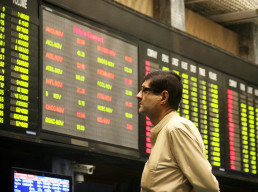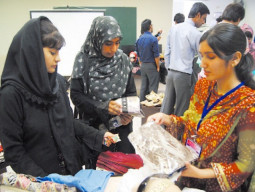
Despite a spike in tensions in Afghanistan and uncertainty over the future once foreign combat forces leave in 2014, India was committed to developing the Hajigak mines and a 6 million tonne steel plant alongside, CS Verma, chairman of Steel Authority of India, told Reuters in an interview.
A contract is to be signed in two months in what will be the biggest foreign investment in Afghanistan’s resources sector, larger than the $4.4 billion the Chinese are investing in the Aynak copper mine.
Mining work is expected to begin in late 2014 just when Afghan security forces take over security responsibilities and it remains a big concern whether they will be able to tackle a Taliban insurgency at its worst.
For the Indians, the challenge of transporting the ore out of the landlocked country is an additional issue given they have no direct access.
Pakistan is the obvious route and the alternative is a longer way westwards to Iran and then shipping it through the port of Chabahar that India has promoted to reduce Afghanistan’s dependence on Pakistan.
But Verma told Reuters that the consortium made up of seven state and private firms was looking to move the ore along Pakistani roads crossing over to India, believing the benefits far outweighed political hostility between the two countries.
“What we have here is a gold mine, more than just an iron mine. I believe this is what everyone else will eventually realise. Ultimately the economic interests of everyone in the region including Pakistan will take precedence”.
The Hajigak deposit contains an estimated 1.8 billion tonnes of ore, with an iron concentration of anything between 61% to 64%. “Where will you find such high grade ore? People have invested in mines elsewhere in the world with much less ferrous content,” Verma said.
India, he said, would pursue the Pakistani option both as a way to truck the ore out and a route to build a slurry pipeline. “We are very bullish and believe that over the longer term this will be a productive investment. Not just for us, but others in the region including Pakistan. There are license fees, logistics, etc.”
Loggerheads
Pakistan and India have been at loggerheads over Afghanistan for years with Pakistan suspicious of India’s extensive aid and reconstruction efforts there, and fearing a loss of influence.
But Pakistani businessmen have urged the country’s military and political leaders to open up trade with India, arguing that they only way the economy can climb out of a low growth path is to do business with its giant neighbour to the east.
Pakistan has agreed to grant India Most Favoured Nation to promote trade and the two sides while still poles apart on political issues, are taking steps to expand the trade basket. Later this week, officials will hold talks on trade in petroleum products.
Verma said seven of India’s biggest companies in the steel sector were involved in the Afghan venture. “We know its difficult terrain, we have never done anything like this before, but we are bringing all our resources.”
Published in The Express Tribune, March 22nd, 2012.
1719315628-0/BeFunky-collage-(8)1719315628-0-405x300.webp)


1731329418-0/BeFunky-collage-(39)1731329418-0-165x106.webp)













COMMENTS
Comments are moderated and generally will be posted if they are on-topic and not abusive.
For more information, please see our Comments FAQ